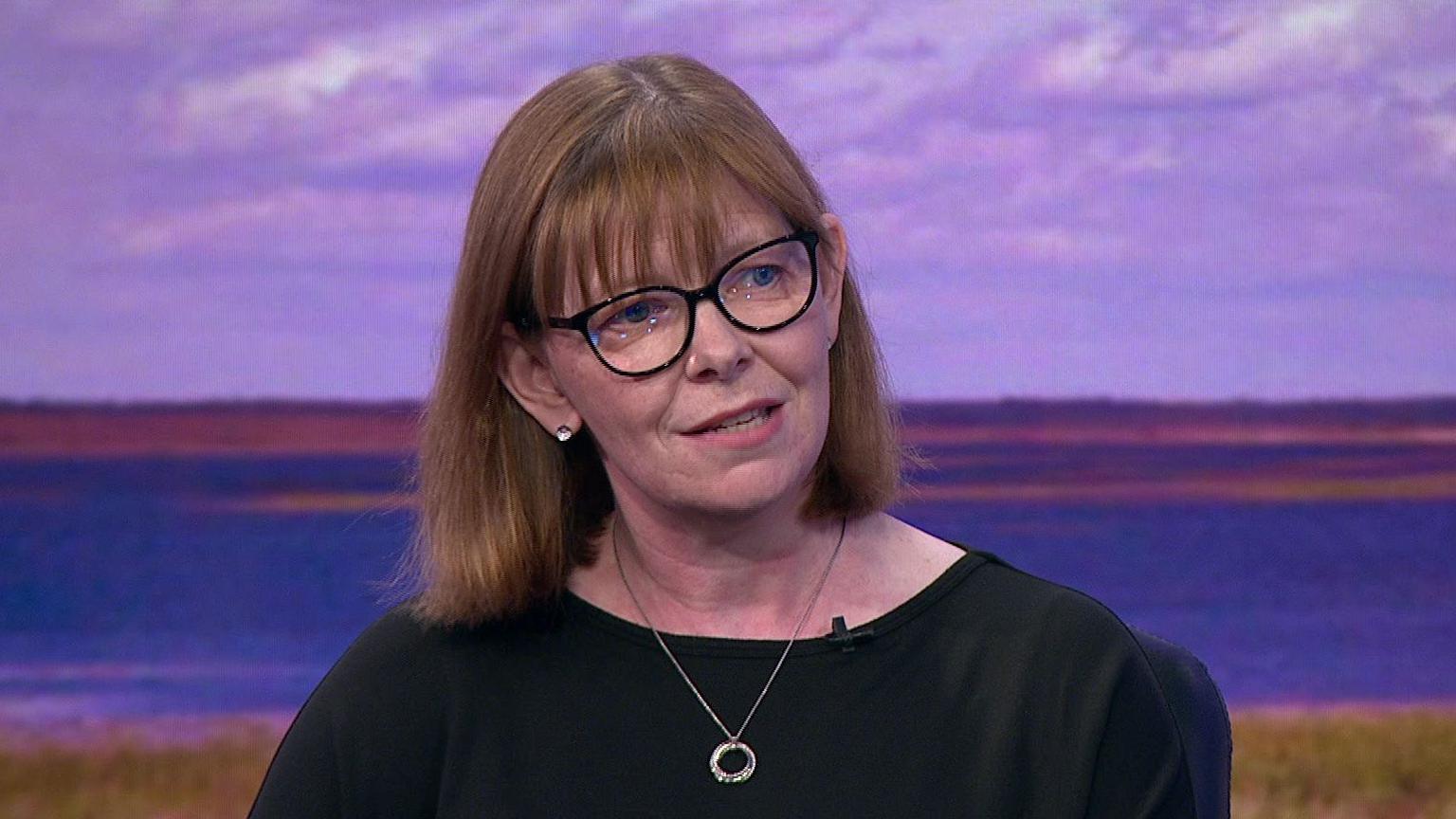Hospital beds could be cut, health bosses warn
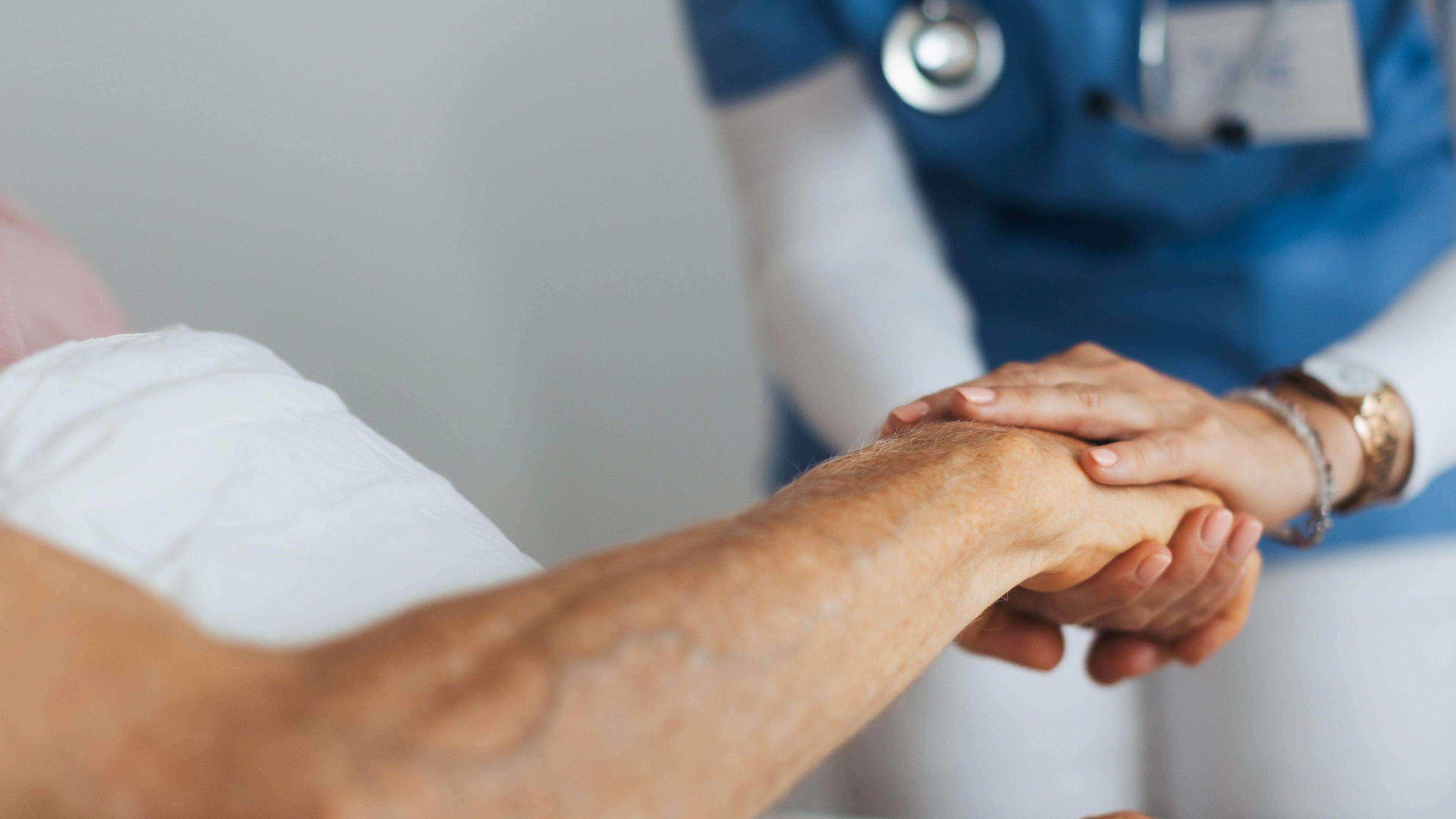
There's "very real potential for avoidable and serious harm" being caused, the health trust chairs said
- Published
Hospital beds could be cut and care packages scaled back due to cutbacks in Northern Ireland's health service, it has been warned.
In a joint statement, the heads of Northern Ireland's six health and social care trusts said they were deeply concerned at the finances of frontline services.
The chairpersons warned of "catastrophic impacts".
They said "intensive efforts" were ongoing to deliver significant savings for the current financial year, but even with these a "very significant shortfall remains that could only be filled by measures with high and catastrophic impacts".
"Such cutbacks would inevitably include bed closures as well as reductions in outpatient care, operating lists, domiciliary care and nursing care packages," their statement added.
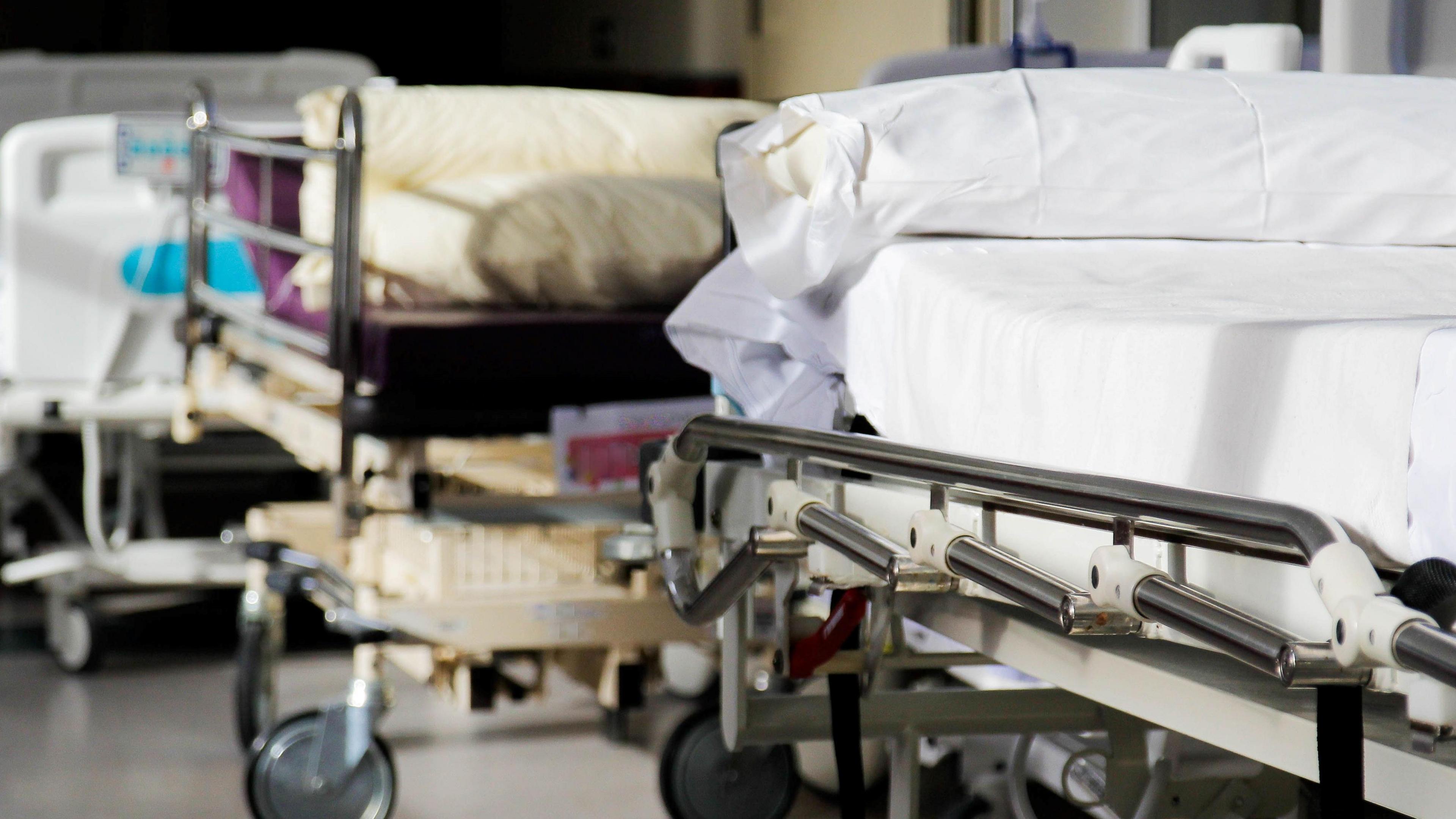
Cutbacks could include bed closures, the health trust leaders say
Health Minister Mike Nesbitt has said funding cuts that cause “catastrophic impacts” to services will not be made on his watch.
He was speaking in the Northern Ireland Assembly on Monday after taking over as health minister last week from his Ulster Unionist Party (UUP) colleague Robin Swann.
The party opposed Stormont’s budget after raising concerns over the level of funding provided for the Department of Health.
Mr Nesbitt said he has been “stunned by the budget briefings" he has received.
"I fear this house, or parts of it, may not fully understand the consequences for healthcare," he said.
"The stark reality is that if I implement the current budget, the consequence will be that many patients will suffer harm."
The minister said proposed savings were at an “unprecedented level” and a break-even budget would require “high and catastrophic-impact decisions”.
He said this would lead to “reductions in acute beds, in home care hours and in care home beds” which there would be “significant and sustained consequences".
"In short, catastrophic cuts will simply make the situation worse. Pressures on services and staff that are already at severe levels will be significantly intensified,” he said.
“It also means that as we currently stand, there is no feasible route to affording pay awards."
Speaking in the assembly chamber, he added: "Let me be clear, deputy speaker: cuts with catastrophic impacts - not on my watch."
Outlining his plans as minister, Mr Nesbitt said health inequalities represented the “overarching issue for so many of the critical challenges facing health and social care”.
"I do not want a two-tier system where timely access to treatments is the preserve of those who can afford to go private,” he added.
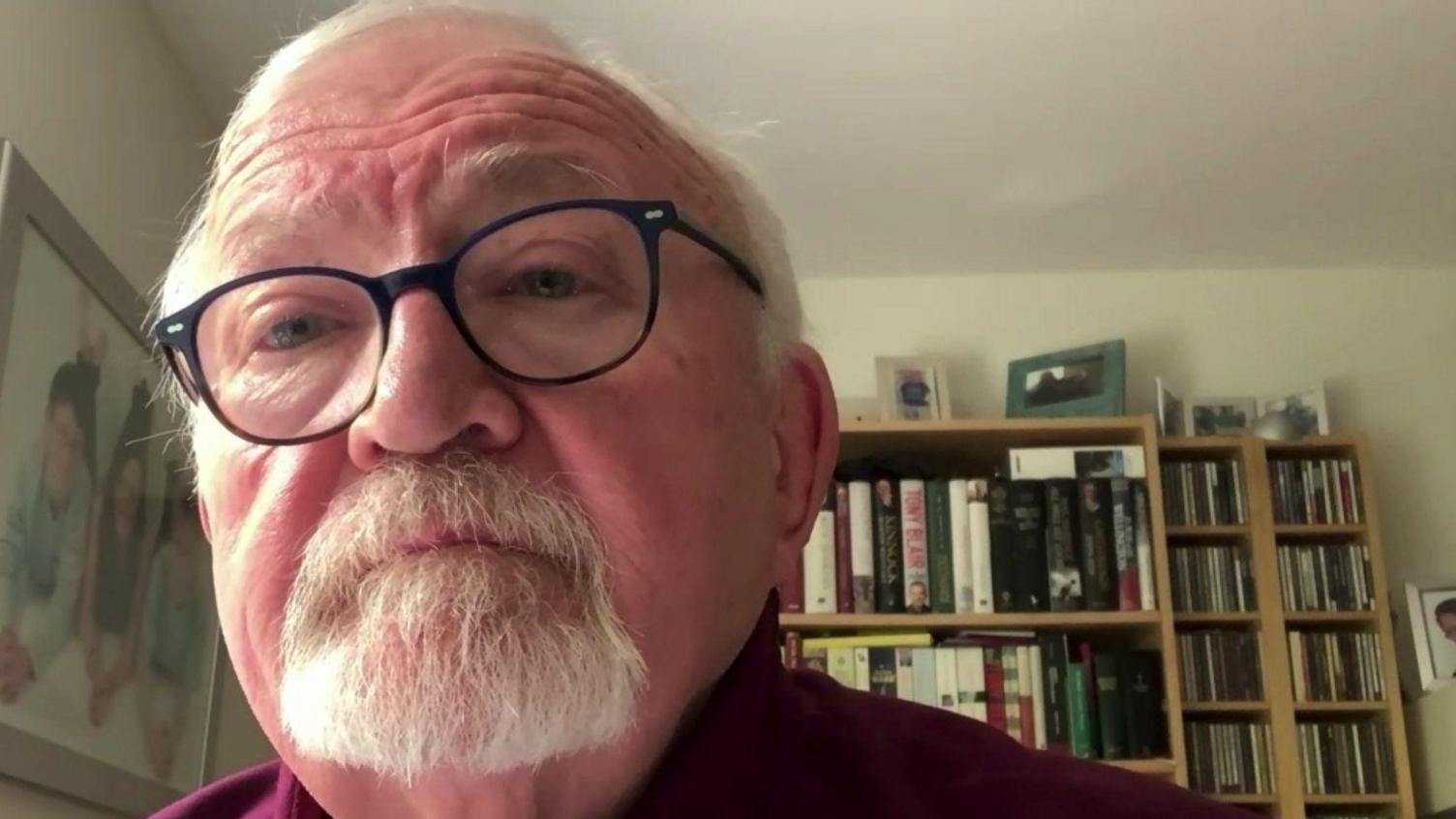
Western Trust chairman Dr Tom Frawley has said it is "the most vulnerable who will suffer"
In February, devolved government in Northern Ireland was restored after a 24-month hiatus.
For most of that time no ministers were in office.
Chairman of the Western Trust Dr Tom Frawley told BBC News NI the absence of politicians had created difficulties for the transformation of the health service.
"The health service knows what the blueprint is, knows what it needs to do and has been developing the analysis to inform that," he said.
"But we’ve had no politicians, who are required to make these judgements and finalise those judgments."
Referring to strains on GP and pharmacy services as well as on hospitals, Dr Frawley said the whole system was under intense pressure and was therefore not in a position to cope with a significant financial cut.
He said "crucial services would be affected because of the level of cuts trusts were being told to make".
"What worries me is that it is the most vulnerable who will suffer in these circumstances and those are the people we should be most concerned about," he added.
"When you take a large sum of money out of the system then you reduce its capacity to respond to those pressures even further, with the implication that circumstances will become worse."
UUP and SDLP opposed budget
The health trusts' warning comes after the chair of the Royal College of GPs in Northern Ireland said pressure on the health service means patients were either paying with "their livelihoods or... their lives".
Dr Ursula Mason said doctors could not "keep doing more and more with less and less".
Last week, the Northern Ireland Assembly passed its first budget in three years, despite several parties voting against the move.
The Ulster Unionist Party - which the health minister is a member of - and the assembly's official opposition, the Social Democratic and Labour Party, refused to support it.
Previous UUP health minister Robin Swann opposed it when it was agreed by other executive ministers in April.
The health department got the largest share of day-to-day funding (£7.8bn).
Related topics
- Published28 May 2024
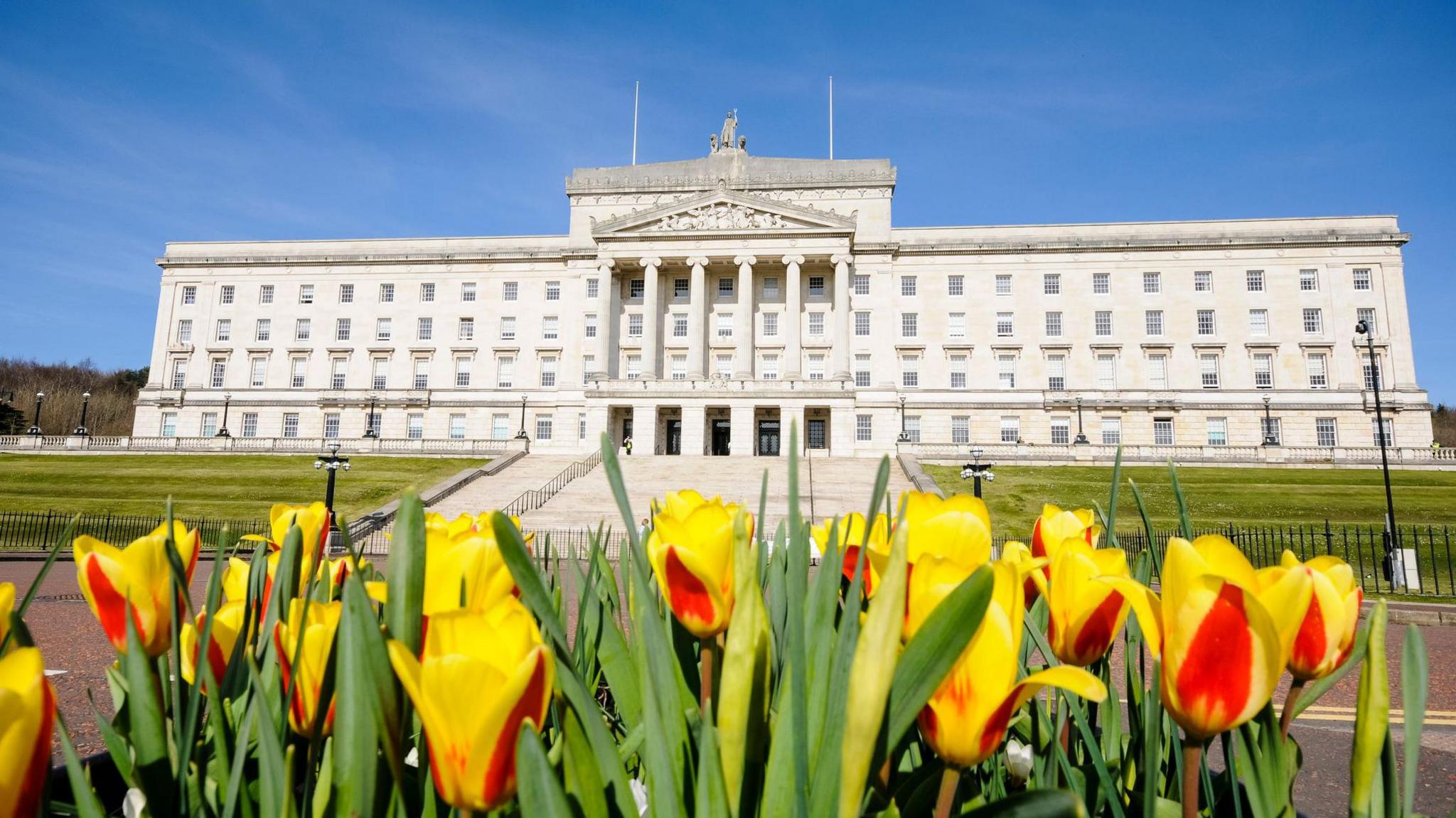
- Published25 April 2024
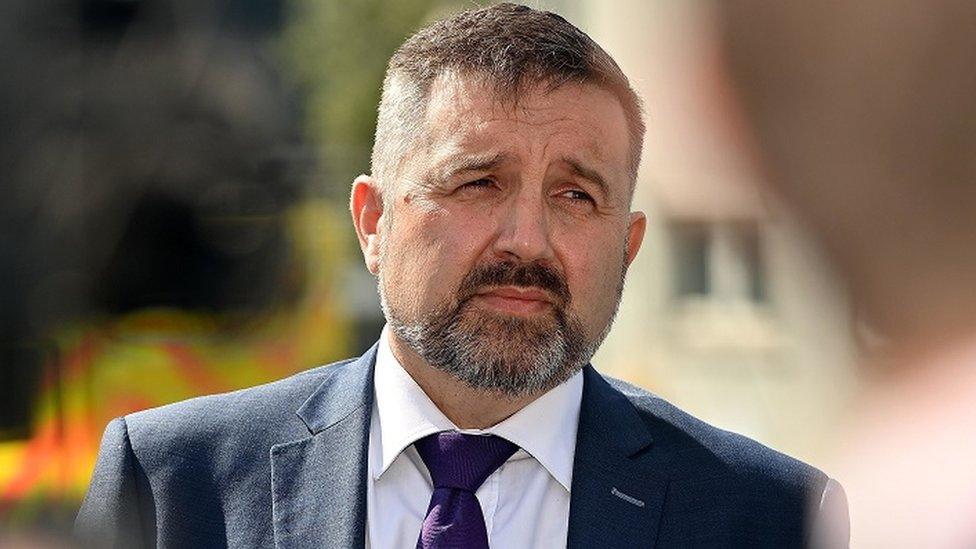
- Published2 June 2024
